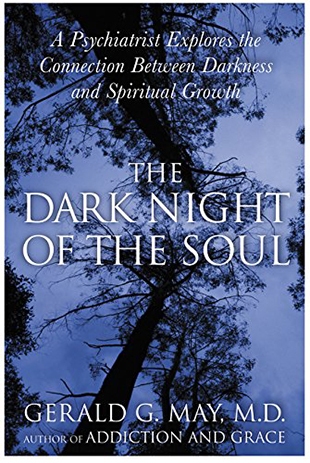Gerald G. May practiced medicine and psychiatry for 25 years before joining the full-time staff at the Shalem Institute for Spiritual Formation in Bethesda, Maryland, where he is now Senior Fellow in Contemplative Theology and Psychology. He is the author of many books including Simply Sane and The Awakened Heart: Living Beyond Addiction. In this helpful resource, May gives an anatomy of the dark night of the soul and opens up some of its rich meanings through his assessments of the Christian mysticism of Teresa of Avila and John of the Cross in sixteenth century Spain.
He begins by clearing away some misconceptions about this phenomenon. The first is that authentic spiritual growth requires monumental struggle and tragedy. Suffering is not something designed to test the spiritual elite; it simply arises from the circumstances of life. Nor does the dark night of the soul only occur once in a lifetime. It doesn't only happen to holy people. And we must get rid of the idea that it is a bad thing.
May puts it this way: "The dark night is a profoundly good thing. It is an ongoing spiritual process in which we are liberated from attachments and compulsions and empowered to live and love more freely. Sometimes this letting go of old ways is painful, occasionally even devastating. But this is not why the night is called 'dark.' The darkness of the night implies nothing sinister, only that the liberation takes place in hidden ways, beneath our knowledge and understanding. It happens mysteriously, in secret, and beyond our conscious control. For that reason it can be disturbing or even scary, but in the end it always works to our benefit."
Teresa of Avila and John of the Cross see the dark night of the soul is "the secret way in which God not only liberates us from our attachments and idolatries, but also brings us to the realization of our true nature. The night is the means by which we find our heart's desire, our freedom for love." May points out that some AA members call themselves "grateful alcoholics" because their addiction finally brought them to their knees and a true surrender to God. Similarly with the dark night of the soul: it enables us to give up control of our lives and to rest in the grace of the One Who Cares.
As usual, the author's skillful blend of psychology and spirituality is very appealing. He has taken a difficult spiritual passage and made it much clearer.
